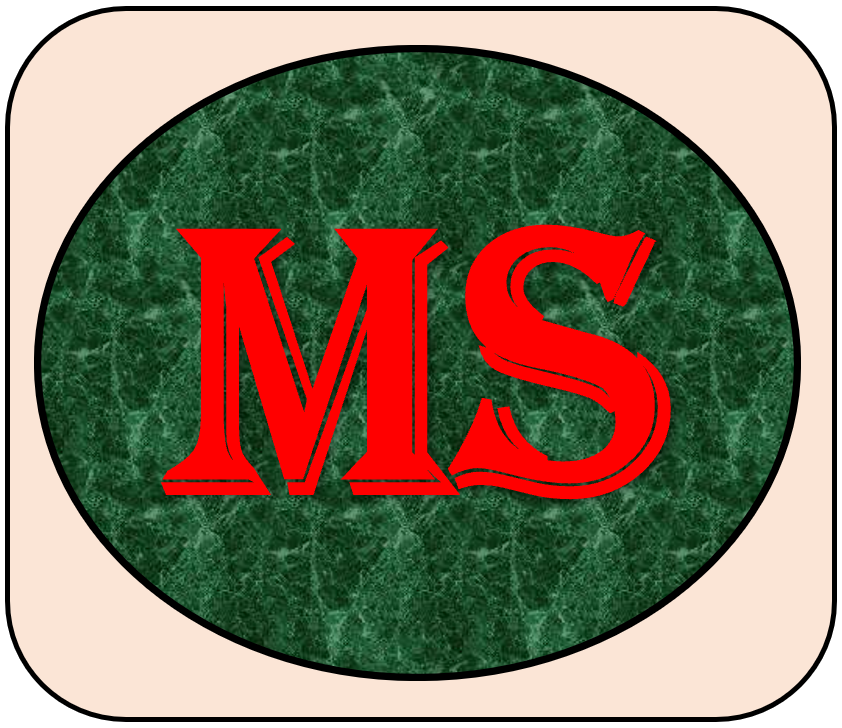Mathematics
MCQ | Class 09 | Chapter 1
Real Numbers
- MCQ Based on the Number System
- MCQ Based on the different types of decimals
- MCQ Based on the rationalization of numbers
Features
- In this pdf given below you find the important MCQ which are strictly according to the CBSE syllabus and are very useful for the CBSE Examinations.
- Solution Hints are also given to some difficult problems.
- Each MCQ contains four options from which one option is correct.
Action Plan
- First of all students should Learn and write all basic points and Formulas related to the Chapter 1 Real Numbers.
- Start solving the NCERT Problems with examples.
- Solve the important assignments on the Chapter 1 Class XI.
- Then start solving the following MCQ.
MCQ | CHAPTER – 1 | CLASS IX
REAL NUMBERS
Q1) Can we write 0 in the form of p/q?
a. Yes
b. No
c. Cannot be
explained
d. None of the
above
Answer:
a
of the following is Natural number?
a) 3.5
b) 7
c) 0
d) -2
Answer b
a. 5/2, 6/2, 7/2
b. 13/4, 14/4,
15/4
c. 12/7, 13/7,
14/7
d.11/4, 12/4,
13/4
Answer: b
Q4) Which
of the following option is true based on the below statements?
i) All integers are rational numbers.
ii) All rational numbers are integers.
a) Both statements are true
b) Statement (i) is true and Statement (ii) is
false
c) Statement (i) is false and Statement (ii) is
true
d) Both statements are false
Answer b
Q5) In between any two numbers, there are:
a. Only one
rational number
b. Two rational
numbers
c. Infinite
rational numbers
d. No rational
number
Answer: c
Q6) How
many whole numbers are there between -3 and 3 (Including -3 and 3)?
a) Four
b) Zero
c) Seven
d) Three
Answer a
Q7) Every rational number is:
a) Whole number
b) Natural
number
c) Integer
d) Real number
Answer: d
Q8) 0.3333…
is a/an ______________
a) natural number
b) whole number
c) rational number
d) irrational number
Answer c
Q9) √9 is __________ number.
a) A rational
b) An irrational
c) Neither
rational nor irrational
d) None of the
above
Answer: a
Q10) Which of the following is an irrational number?
a) √16
b) √(12/3)
c) √12
d) √100
Answer: c
Q11) 3√6 + 4√6 is equal to:
a) 6√6
b) 7√6
c) 4√12
d) 7√12
Answer: b
Q12) By rationalizing the denominator of , we get
a)
b)
c)
d)
Answer d
Q13) √6 x √27 is equal to:
a) 9√2
b) 3√3
c) 2√2
d) 9√3
Answer: a
Q 14) By rationalize the denominator of we get
a)
b)
c)
d)
Answer b
a) x6 –
x3
b) x6.x3
c) x6/x3
d) (x6)3
Answer:
c
a) √23
b) √225
c) 0.3796
d) 7.478478
Answer: a
Q 17) By
simplifying (8)2/3, we get __________
a) 4
b) 16
c) (8)2/(8)3
d) 32
Answer: a
Q 18) Which of the following is an irrational number?
a) 0.14
b) 0.1416¯
c) 0.1416……
d) 0.4014001400014…
Answer: d
Q 19) 2√3+√3 =
a) 6
b) 2√6
c) 3√3
d) 4√6
Answer: c
Q 20) The number
obtained on rationalizing the denominator of 1/ (√7 – 2) is
a) (√7+2)/3
b) (√7-2)/3
c) (√7+2)/5
d) (√7+2)/45
Answer: a
Q 21) Which of the
following is rational?
a) 4/0
b) 0/4
c) √3
d) π
Answer: b
Q 22) The irrational
number between 2 and 2.5 is
a) √11
b) √5
c) √22.5
d) √12.5
Answer: b
Q 23) The value of √10
times √15 is equal to
a) 5√6
b) √25
c) 10√5
d) √5
Answer: a
Q24) The decimal
representation of the rational number is
a) Always
terminating
b) Either
terminating or repeating
c) Either
terminating or non-repeating
d) Neither terminating
nor repeating
Answer: b
Q25) Which of the
following is a rational number?
a) 0
b) 2√3
c) 2+√3
d) π
Answer: a
Q26) Which of the
following is an irrational number?
a) √(4/9)
b) √12/√3
c) √7
d) √81
Answer: c
Q 27) Simplified value of is
b) 4
c) 1
d) 0
Ans: c
a) 1/8
b) 1/2
c) 8
d) 1/64
Answer: a
Q 29) Find the value of
b) -1
c) 9
d) 6
Ans a
Q30) When
a) 5√3
b) 3√5
c) 5√5
d) 3√3
Answer: (c)
Q 31) In between any two numbers there are:
a) Only one rational number
b) Many rational numbers
c) Infinite rational numbers
d) No rational number
Answer c
a) Whole number
b) Natural number
c) Integer
d) Real number
Answer d
a) 6√6
b) 7√6
c) 4√12
d) 7√12
Answer b
a) x6-x3
b) x6.x3
c) x6/x3
d) (x6)3
Answer c
product of a rational and an irrational numbers is:
a) Always an integer
b) Always a rational number
c) Always an irrational number
d) Sometimes rational and sometimes irrational
Answer c
X √15 is equal to:
a) 5√6
b) 6√5
c) 10√5
d) √25
Answer b
decimal expansion of an irrational number may be:
a) Terminating
b) Recurring
c) Either terminating or non- terminating
d) Non-terminating and non-recurring
Answer d



Nice